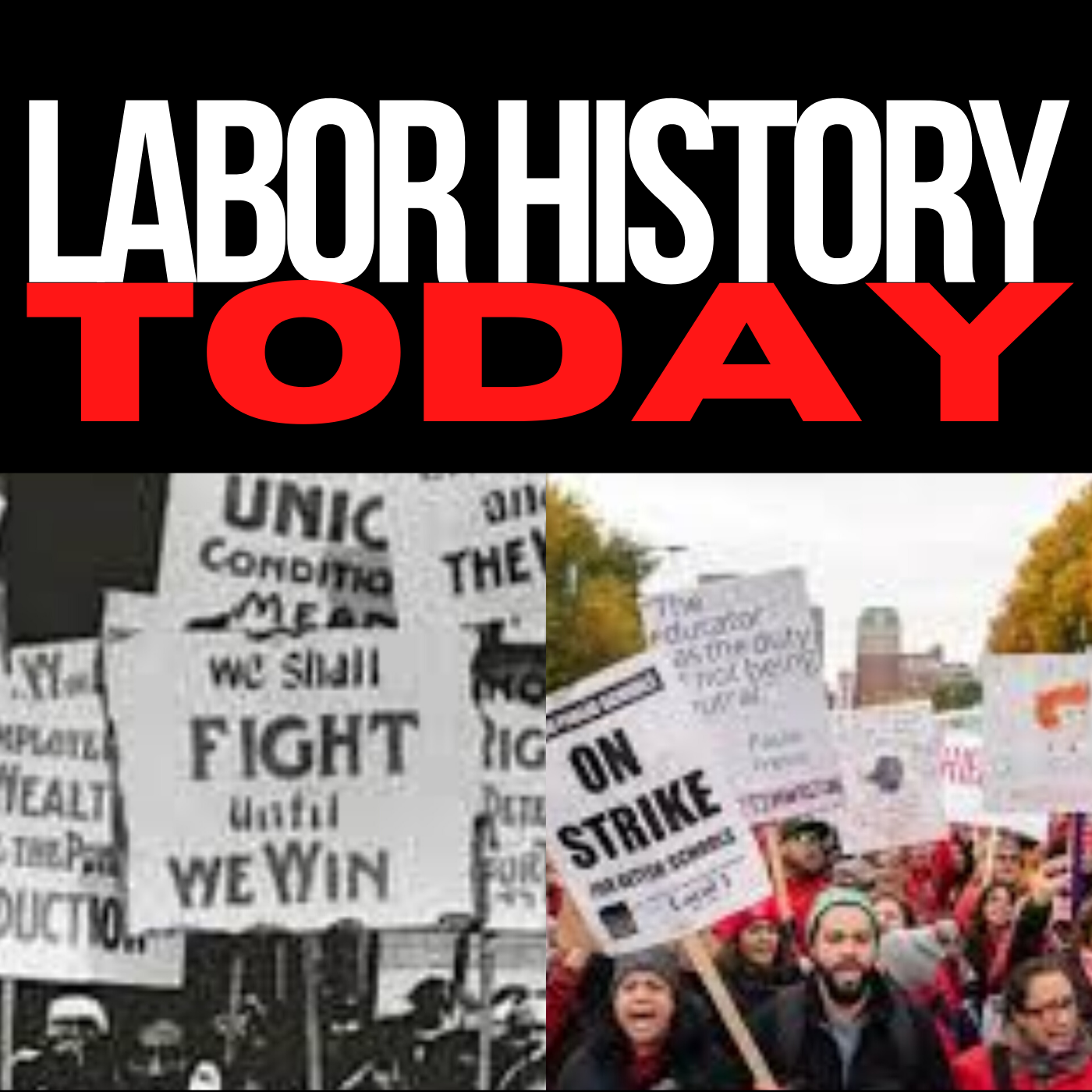Episodes
Episodes
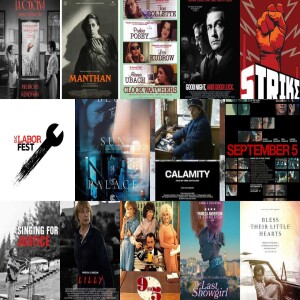


Sunday Apr 20, 2025
Union Made: The DC Labor FilmFest Preview
Sunday Apr 20, 2025
Sunday Apr 20, 2025
This week on Labor History Today: The 25th annual DC Labor FilmFest kicks off May Day at the AFI Silver! Host Chris Garlock previews the powerful lineup of films about work and workers with AFI programmers Todd Hitchcock, Abbie Algar, Eli Prysant, and Javier Chavez — including LILLY, The Last Showgirl, and more.
Plus: On Labor History in 2:00, we remember the 1914 Ludlow Massacre. And historian Nick Juravich shares a favorite labor song celebrating the radical legacy of the National Maritime Union.
🎟️ Full festival info at laborheritage.orgQuestions, comments, or suggestions are welcome, and to find out how you can be a part of Labor History Today, email us at LaborHistoryToday@gmail.com
Labor History Today is produced by the Labor Heritage Foundation and the Kalmanovitz Initiative for Labor and the Working Poor.
#LaborRadioPod #History #WorkingClass #ClassStruggle @GeorgetownKILWP #LaborHistory @UMDMLA @ILLaborHistory @AFLCIO @StrikeHistory #LaborHistory @wrkclasshistory
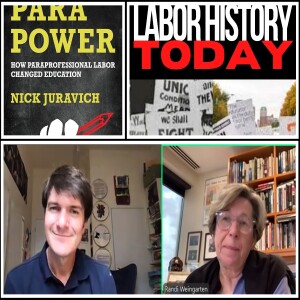


Sunday Apr 13, 2025
Para Power
Sunday Apr 13, 2025
Sunday Apr 13, 2025
On Labor History Today: Para Power: AFT president Randi Weingarten talks with Nick Juravich, associate director of the Labor Resource Center at UMass Boston, about class, race and education and his book Para Power: How Paraprofessional Labor Changed Education. PLUS: Nick’s almost-favorite labor song, and, on Labor History in 2:00, Florence Reece is born. Labor History Today is a member of the Labor Radio Podcast Network.@AFTunion @rweingarten @NickJuravich @AFISilver @LaborHeritage1 @wpfwdc @aflcio #1u #unions #laborradiopod



Sunday Apr 06, 2025
A Chance to Harmonize
Sunday Apr 06, 2025
Sunday Apr 06, 2025
On Labor History Today: In 1934, as part of an effort to boost morale and encourage citizens to find community in their traditions, the Roosevelt administration sent artists to homesteads throughout the country to lead group activities—including listening to and making folk music. On today’s show, a conversation centered around A Chance to Harmonize: How FDR’s Hidden Music Unit Sought to Save America from the Great Depression—One Song at a Time, a book by award-winning author and music scholar Sheryl Kaskowitz.The event took place at the Roosevelt House Public Policy Institute at Hunter College on October 16, 2024; our show today is excerpted from a longer video.
On this week’s Labor History in Two: Rose Schneiderman is born.
Questions, comments, or suggestions are welcome, and to find out how you can be a part of Labor History Today, email us at LaborHistoryToday@gmail.com
Labor History Today is produced by the Labor Heritage Foundation and the Kalmanovitz Initiative for Labor and the Working Poor.
#LaborRadioPod #History #WorkingClass #ClassStruggle @GeorgetownKILWP #LaborHistory @UMDMLA @ILLaborHistory @AFLCIO @StrikeHistory #LaborHistory @wrkclasshistory
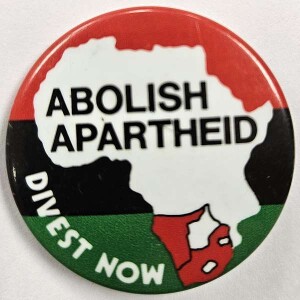


Sunday Mar 30, 2025
Taking a Stand: Union Solidarity Against Apartheid
Sunday Mar 30, 2025
Sunday Mar 30, 2025
On Labor History Today: Kings and presidents and CEOs like to think that they make history but real history is actually made by thousands of small actions like this: a handful of grounds workers at a local school district refusing to handle South African chicken wire, multiplied around the globe until, eventually, the entire racist system of apartheid collapses. Today’s episode tells the impressive story of international solidarity by union members in British Columbia – B.C. -- who worked tirelessly in support of those fighting to end apartheid. It comes to us from On The Line: Stories of BC Workers, a consistently terrific podcast from our friends in the free and independent country of Canada.
On this week’s Labor History in Two: Fifteenth Amendment adopted; Remembering ILWU Leader Harry Bridges
Questions, comments, or suggestions are welcome, and to find out how you can be a part of Labor History Today, email us at LaborHistoryToday@gmail.com
Labor History Today is produced by the Labor Heritage Foundation and the Kalmanovitz Initiative for Labor and the Working Poor.
@BC_LHC #LaborRadioPod #History #WorkingClass #ClassStruggle @GeorgetownKILWP #LaborHistory @ILLaborHistory @AFLCIO @StrikeHistory #LaborHistory @wrkclasshistory
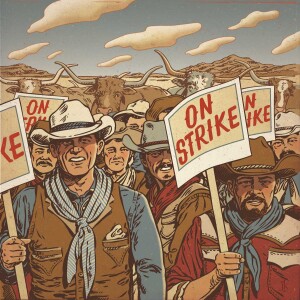


Sunday Mar 23, 2025
Sam Walton, Harry Bridges & The Great Cowboy Strike (Encore)
Sunday Mar 23, 2025
Sunday Mar 23, 2025
On Labor History Today: Joe McCartin, Leon Fink and Patrick Dixon discuss the 2002 U.S. Supreme Court ruling that undocumented workers don’t have the same rights as Americans, Sam Walton’s anti-union legacy, and they remember dock union leader Harry Bridges and the Texas cowboys strike. PLUS: Saul Schniderman on Martin Luther King and striking sanitation workers in Memphis. Music this week includes “Glory,” with Common and John Legend, from the motion picture "Selma” and “A Change Is Gonna Come” by Sam Cooke. Originally released March 25, 2018.Questions, comments, or suggestions are welcome, and to find out how you can be a part of Labor History Today, email us at LaborHistoryToday@gmail.com
Labor History Today is produced by the Labor Heritage Foundation and the Kalmanovitz Initiative for Labor and the Working Poor.
#LaborRadioPod #History #WorkingClass #ClassStruggle @GeorgetownKILWP #LaborHistory @UMDMLA @ILLaborHistory @AFLCIO @StrikeHistory #LaborHistory @wrkclasshistory
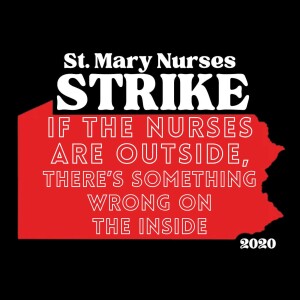


Sunday Mar 16, 2025
The St. Mary Nurses Strike of 2020
Sunday Mar 16, 2025
Sunday Mar 16, 2025
Labor History Today: During the height of the COVID-19 pandemic, 800 nurses walked out on strike in Bucks County, Pennsylvania. As concern rises about the return of measles and cuts to healthcare staff and budgets, this edition of the Labor Jawn podcast from February 2022 is especially timely.And, a double-hit of Labor History in Two: The day The Grapes of Wrath opened in movie theaters, and the day Bruce Springsteen was inducted into the Rock and Roll Hall of Fame.Questions, comments, or suggestions are welcome, and to find out how you can be a part of Labor History Today, email us at LaborHistoryToday@gmail.com
Labor History Today is produced by the Labor Heritage Foundation and the Kalmanovitz Initiative for Labor and the Working Poor.
#LaborRadioPod #History #WorkingClass #ClassStruggle @GeorgetownKILWP #LaborHistory @UMDMLA @ILLaborHistory @AFLCIO @StrikeHistory #LaborHistory @wrkclasshistory
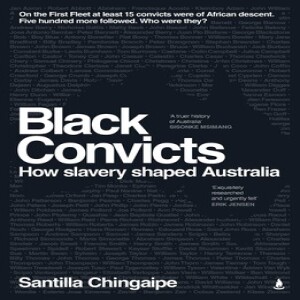


Sunday Mar 09, 2025
Black Convicts: How Slavery Shaped Australia
Sunday Mar 09, 2025
Sunday Mar 09, 2025
Labor History Today: This week’s edition of the show takes us to Australia, but the history of slavery and the ongoing failure to come to terms with the resulting racism and discrimination there echo uncomfortably loudly here in the United States as Donald Trump ramps up his campaign to stamp out any effort to acknowledge that such things exist, as though by simply abolishing the words diversity, equity and inclusion we can magically erase generations of oppression.It cannot do so, but we clearly have a long way to go here at home, and it’s instructive – and a bit inspiring -- to hear how our brothers and sisters Down Under are struggling with the same issues.Today’s show comes to us from the Melbourne-based radio show Stick Together; host James Brennan talks with author Santilla Chingaipe about her book “Black Convicts: How slavery shaped Australia.”Questions, comments, or suggestions are welcome, and to find out how you can be a part of Labor History Today, email us at LaborHistoryToday@gmail.com
Labor History Today is produced by the Labor Heritage Foundation and the Kalmanovitz Initiative for Labor and the Working Poor.
@stick__together #LaborRadioPod #History #WorkingClass #ClassStruggle @GeorgetownKILWP #LaborHistory @UMDMLA @ILLaborHistory @AFLCIO @StrikeHistory #LaborHistory @wrkclasshistory
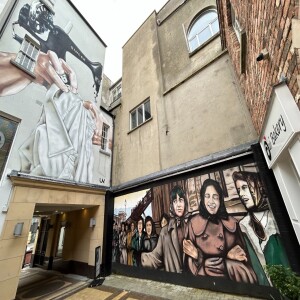


Sunday Mar 02, 2025
Derry’s Missing Factory Girls
Sunday Mar 02, 2025
Sunday Mar 02, 2025
On Labor History Today: A visit to the Northern Ireland city of Derry and a search for the real Factory Girls. On this week’s Labor History in Two: Jefferson Outlaws the Slave Trade; Greyhound Bus Drivers StrikeQuestions, comments, or suggestions are welcome, and to find out how you can be a part of Labor History Today, email us at LaborHistoryToday@gmail.com
Labor History Today is produced by the Labor Heritage Foundation and the Kalmanovitz Initiative for Labor and the Working Poor.
Sources: Derry’s Factory Girls Deserve Better?Londonderry's factory girls celebrated with new mural
@Bradley_Steve #LaborRadioPod #History #WorkingClass #ClassStruggle @GeorgetownKILWP #LaborHistory @UMDMLA @ILLaborHistory @AFLCIO @StrikeHistory #LaborHistory @wrkclasshistory

